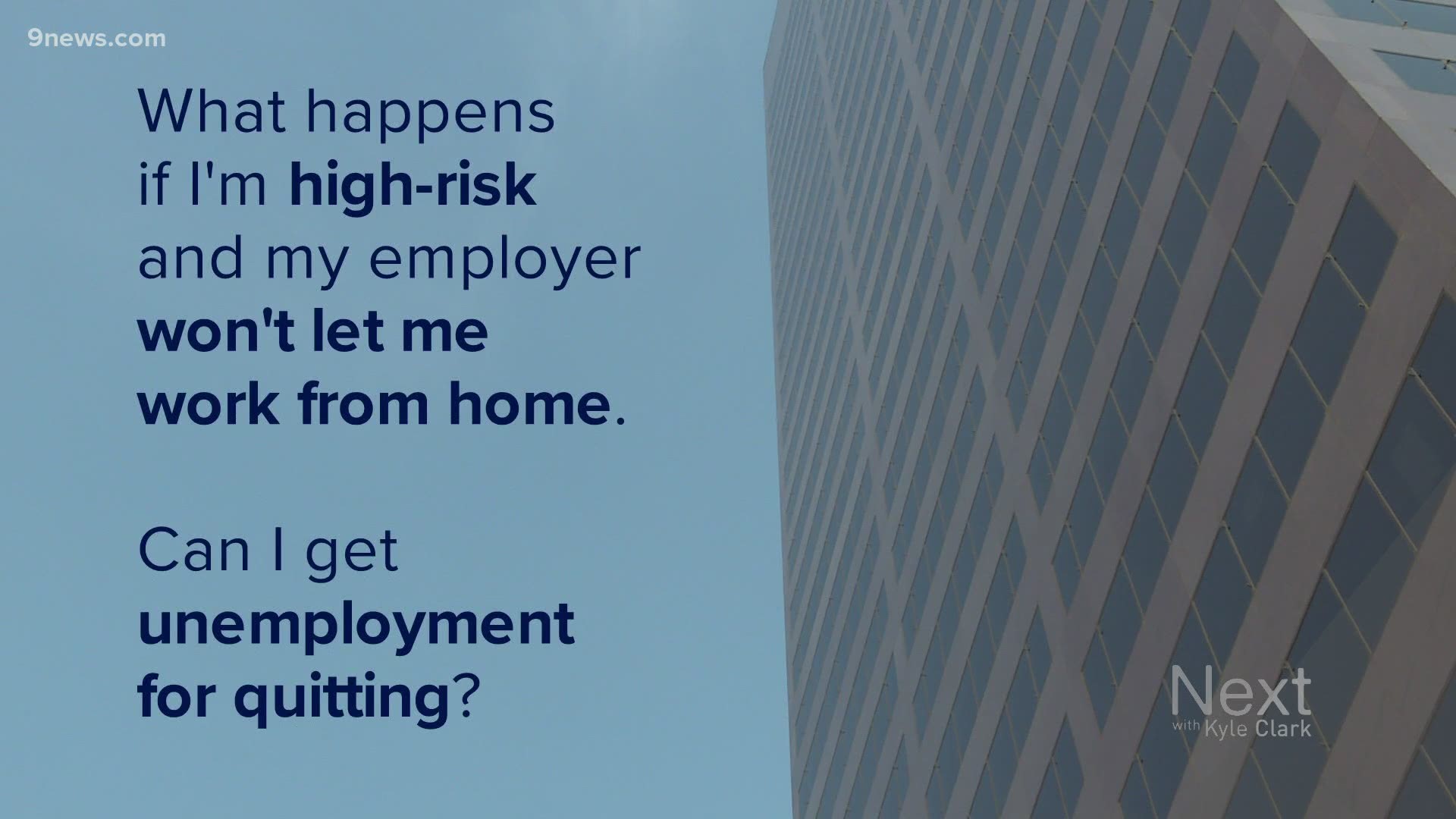DENVER — As Colorado gets ready to transition from "stay-at-home" to "safer-at-home" guidelines, non-critical businesses need to prepare to re-open with new rules.
Gov. Jared Polis hinted at what the new public health order would look like when he introduced the term "safer-at-home" on Monday. He said offices could be "50% open" with strict precautions. He's advising symptom and temperature checks on in-person workers, but he's not requiring it. He's also encouraging the continued use of telework.
What's required or expected of businesses won't be known for certain until the Colorado Department of Public Health and Environment (CDPHE) issues the new public health order.
"What we've suggested to our businesses is they should be really thinking about what are the steps they can take to ensure that we're not increasing the spread of the virus," said Kelly Brough, president of the Denver Metro Chamber of Commerce. "Do you need additional hand sanitizer? Change cleaning schedules? Space out the work so people aren't there together, and it's not as crowded."
Brough suggested workers who normally take transit should think of alternatives for added protection.
"This is where all of us should be thinking about protective gear at work. Having it. Purchasing it now. Having it ready, the masks, things like that," said Brough. "Maybe the greatest challenge — because of people with young children, who have nowhere for their kids — is trying to figure out what can work for both the family and the employer."
Under the Families First Coronavirus Response Act, passed by Congress, parents have added protection if they are unable to work.
"If you have fewer than 500 employees, and you have an employee who has to stay at home and take care of their kid, and you are not going to allow them to telework, then you have to pay them two-thirds of their pay for up to 12 weeks," said Lorrie Ray, director of member engagement for Employers Council.
Next with Kyle Clark received viewer questions that we took to Employers Council.
Q: What happens if I'm high-risk and my employer won't let me work from home. Can I get unemployment for quitting?
Ray: It would all depend on whether or not the unemployment division were to decide if the employee was at fault.
Typically, if an employee can't come to work because they're ill, they're not at fault, and typically they would get unemployment. The question here is, they're not necessarily ill, but they're afraid to come into the workplace because of their underlying condition. I would expect most employees to go to their doctor and get some sort of doctor's note, but if they didn't, they may or may not get unemployment.
The Occupational Safety and Health Administration requires employers to have a place of employment "which are free from recognized hazards that are causing or are likely to cause death or serious physical harm to his employees."
An employee could point to this OSHA Act to argue they have a right to work from home.
Although, if any employee is being allowed to work from home, that option needs to be made available to all employees, if their job allows.
Q: Can my employer ask if I'm sick?
Ray: Yes, they can ask you that to determine if you're still in a time period where you might be contagious.
Q: Can an employer require me to have my temperature taken?
Ray: Yes, that is legitimate. That would be allowable currently, of course ordinarily that wouldn't be allowed, but currently, in order to protect the workforce, that would be allowed.
They can ask questions about your health. They can take your temperature. I would imagine they could do a fitness for duty, and have you tested, but tests aren't widely available, so that's probably not something they can do as a practical matter right now. What they cannot do is disclose individual information about an employee.
Q: Am I allowed to know if a co-worker tests positive for COVID-19?
Ray: This is kind of tricky because there's a couple different laws in play here. The first one is OSHA, and you have a 'duty to warn,' so if there's somebody I've been working with who's sick with the virus, I have a duty to understand that I've been exposed.
You have a competing law, which is the American with Disabilities Act, which protects our health information and our medical information, and what it says is you cannot disclose the identity of the person. An employer would need to let people know that there has been exposure, where that exposure took place, when that took place, but not disclose who was ill.
Q: Can my employer require me to wear protection?
Ray: Yes, they can require personal protective equipment and masks.
Q: Will I be compensated if I contract COVID-19 while at work?
Ray: The insurance carrier makes a determination of whether or not it was work-related. If there was evidence that everyone in that area came down with COVID-19, you may be allowed to accept workers' comp benefits.
SUGGESTED VIDEOS: Full Episodes of Next with Kyle Clark

